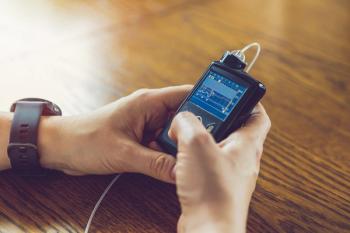
Pharmacy Practitioners Describe Experiences With COVID-19 Misinformation
COVID-19 misinformation is common. A study presented at the annual APhA meeting examined how new pharmacy practitioners responded to misinformation and tried to minimize its spread.
A recent study conducted by researchers at the University of Mississippi (UM) and St. John’s University (SJU)—and presented at the APhAAnnual Meeting & Exposition—aimed to specify what kind of misinformation pharmacy practitioners are exposed to from patients, and how to mitigate patients’ fears about COVID-19 vaccine safety to prevent further spread of misinformation.1
The study participants were all recent UM or SJU graduates who “Had to be licensed pharmacists in jobs that require patient interaction on a daily or weekly basis.” The participants work in a variety of pharmacy types, including “ambulatory, long term care, independent, chain and hospital pharmacies.”
In order to better understand the origins and concerns of patients, the participants were given interview questions based on the HURIER method, which isused to build listening skills using the constructs ofhearing, understanding, remembering, interpreting, evaluating, and responding. The questions were also based on the World Health Organization(WHO)algorithm of how to respond to vocal vaccine deniers.
Much of the general COVID-19 vaccine misinformation that pharmacists encounter stems from a general skepticism and lack of trust. The “safety” and “efficacy” of COVID-19 vaccines were mentioned often, according to the researchers, and “trust” in a vaccine—or lack thereof—was a common sentiment as well.
Study participants also mention “tone” as a barrier to productive discussions; in other words, aggressive patients were less likely to be willing to listen than a patient with a “questioning” tone.
Some of the most common ways in which pharmacist practitioners attempted to dispel misinformation was by mentioning “constant self-learning,” “reliance on reputable sources,” and “empathy” to their patients.
This study does not specifically mention where patients’ fears of the vaccine’s “safety” of “efficacy” come from, but Johns Hopkins University2021 study on vaccine hesitancy offers some ideas.2 “The speed of vaccine approval, insufficient communication about vaccine development, testing, and approval processes, and the polarization of public health and medical regulatory bodies may have facilitated distrust of a COVID-19 vaccine,” the authors wrote. When vaccines were first released to the public, a distrust in the WHO, and the pharmaceutical companies who distributed the vaccine—namely Pfizer and Moderna—were widespread.
Although these concerns may lead to misinformation, as seen in the study, they are not necessarily based off misinformation, the study concluded, noting that “the majority of concerns expressed by respondents can be viewed as legitimate and not merely based on a lack of knowledge, which has often been how the antivaccine movement has been portrayed.”
In the end, the UM/SJU abstract presented at APhA volunteers a curriculum that teaches its students how to better respond to misinformation, and comfort patients who are skeptical or untrustworthy of a vaccine. “The results of this research could be used to guide pharmacy curriculum design to ensure pharmacy students graduate with robust skills to dispel misinformation.”
References
1. Nasruddin S, PharmD. Barnard M. Crumby A. Bouldin A. Arya D, PharmD, MPH, FAPhA. Rosenthal M, PhD. New Pharmacist Practitioner Experiences of Listening and Responding to Patient-driven Misinformation. Presented at: American Pharmacists Association 2023 Annual Meeting and Exposition; March 24-27, 2023; Phoenix, AZ. Abstract 1249
2. Latkin CA, Dayton L, Yi G, Konstantopoulos A, Boodram B. Trust in a COVID-19 vaccine in the U.S.: a social-ecological perspective. Soc Sci. 2021;270:113684. doi:10.1016/j.socscimed.2021.113684
Newsletter
Pharmacy practice is always changing. Stay ahead of the curve with the Drug Topics newsletter and get the latest drug information, industry trends, and patient care tips.























